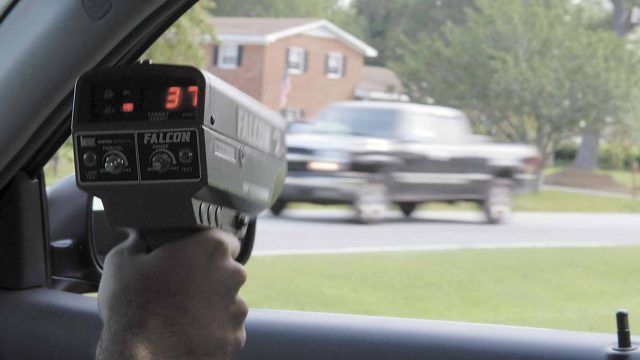Guest Post: Bismarck Doubling Traffic Fines Will Undoubtedly Invite Legal Challenges

This guest post was submitted by Fargo attorney Mark Friese
The Bismarck Tribune reports Bismarck City Commissioners will seek to impose traffic fines with double the financial penalties otherwise provided by law. If approved, this elitist, twice-as-expensive approach would arguably apply to all categories and types of traffic violations.
There are hundreds, but to illustrate, an expired registration violation would cost $40 in Bismarck Municipal Court, but the identical violation would cost $20 in State District Court. Because city, county, and state officers have concurrent jurisdiction to enforce traffic offenses in Bismarck, the only difference in the cost of a ticket is which agency issues it.
The Tribune report is no surprise; Bismarck lawmakers and officials led the charge for passage of Senate Bill 2304, which becomes effective August 1st. The bill would allow cities to treat traffic offenders disparately, imposing traffic fines that exceed state law limits for identical offenses by one hundred percent. The bill creates rightful criticism of improper “policing for a profit.”
Perhaps even more offensive is the unfair and likely unconstitutional treatment Bismarck motorists will face. The bill will undoubtedly create legal challenges going forward.
In the short term, to be effective, Bismarck would have to direct its police to violate the law to facilitate its revenue-generating scheme. Elected and appointed Bismarck leaders, both civilian and police, must resist the urge. Indeed, elected and appointed leaders should fulfill their sworn obligation to uphold the law.
[mks_pullquote align=”right” width=”300″ size=”24″ bg_color=”#ffffff” txt_color=”#000000″]The bill would allow cities to treat traffic offenders disparately, imposing traffic fines that exceed state law limits for identical offenses by one hundred percent. The bill creates rightful criticism of improper “policing for a profit.”[/mks_pullquote]
In practice, North Dakota police officers issuing citations for non-criminal traffic offenses will provide a citation, along with a bond envelope or instructions for paying the ticket. For example, a motorist failing to renew her motor vehicle registration will receive a citation, providing instructions to pay statutory bond of $20.
Once posted, a motorist may then forfeit the bond, or alternatively appear at a designated time for a hearing on the violation. Under state law, “[t]he bond to secure appearance must be identical” to the state statutory fee. These provisions for posting bond and hearings apply to traffic violations under both state law and city ordinance. Importantly, the law requiring identical bond was unchanged by Senate Bill 2304.
Before SB2304 passed, several cautioned lawmakers that efforts to increase traffic fines would be practically ineffective unless implemented uniformly, and with due consideration of all relevant statutes, including the “identical bond” provision. With full knowledge, lawmakers chose to retain the “identical bond” provision. As a result, while cities may arguably charge more for traffic citations, they are required to collect bond at the lower, state law level.
Some may mistakenly suggest the “identical bond” requirement is superseded or repealed by SB2304. Longstanding rules of statutory interpretation provide that if two statutes possibly conflict, the two should be reconciled, giving meaning to both if possible. The identical bond and double-priced ticketing provisions are easily reconciled. If Bismarck unwisely passes an ordinance permitting double-priced traffic fines, city and police leaders must still require its officers to permit posting the lower, state law bond. A driver may then post and forfeit the bond. But, if the driver appears at a hearing and is found to have committed the offense, the municipal court may arguably impose a greater fine. Stated simply, the provisions are reconcilable, and each is entitled to effect.
Increasing traffic fines in North Dakota is a good idea. Permitting the ticket price to vary depending on the agency issuing it is not—particularly when multiple agencies have authority to issue citations within city limits.
Police work is difficult enough. Putting the police in a hypocritical position of violating the law to collect revenue for cities furthers the divide between citizens and their police. Good leaders—even those wanting to exact greater fines out of unsympathetic drivers who neglect to use a turn signal or wear seat belts—must view revenue generation as subordinate to following the law.
City leaders intent on using police to generate revenue contrary to law would be well-served by the wise words of former Supreme Court Justice Louis Brandeis: “Our government teaches the whole people by its example. If the government becomes the lawbreaker, it breeds contempt for the law; it invites every man to become a law unto himself; it invites anarchy.




